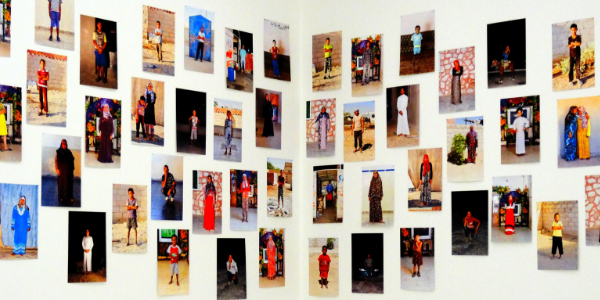by Margot Schaal, GCFP
Lately, I have taken to reading young adult novels while commuting– books about being human, and about be-coming. These books ask questions, as practitioners often do during a Feldenkrais® lesson. They speak to problems; some are proverbs, or humorous. They describe characters with myriad behaviors, many with complex personalities, neither entirely kind nor all cruel. How youth are introduced to adult life correlates to how clients are introduced to a somatic approach to self-knowledge, experiencing themselves in this moment and place.
“Where are you contacting the floor?”
“Is it easier to turn your head to the right or left?”
“What direction does breathing in move you?”
The desire not to be wrong is a tendency that seems to live in human blood, and its power can cripple us. A primary tenet of the Feldenkrais Method® is that learning not only involves “making mistakes,” but requires it. Parents know this and restrain themselves from excessively interfering (correcting) their offspring as they stumble across a room while learning to walk and through the various predicaments they find themselves in as they grow up.
Moshe Feldenkrais, the founder of the Feldenkrais Method said, “To correct is incorrect.” I paraphrase for clients and students regarding questions about what they are sensing that “all answers are correct,” and they feel at ease to believe their experiences and express them. They refine their tactile impressions, varied thoughts and feelings, and internal self-knowledge.
In one of my favorite youth fiction titles, The Phantom Tollbooth, our pressure to offer more choices in Awareness Through Movement®lessons and Functional Integration® sessions is both inverted and supported. The character called the Dodecahedron, who loves solving problems, is a shape with twelve faces, each one showing a different expression. The Dodecahedron states, “Just because you have a choice, it doesn’t mean that any of them has to be right!” (p.176) This phrase so delighted me that I missed my bus stop by two avenues (the lonnggg East West blocks in the City of New York). This presents the kind of ambiguity that enriches experience and is inherent in the teachings Moshe Feldenkrais, who guides us to learn optimal organization for any task, action, or state of being.
I exited the bus and made haste northward, enjoying greatly walking a different route toward work – enjoying my swiftness, the beautiful fall day, and the city noises. I had that familiar experience of others smiling in my direction in recognition of the pleasure visible on my face – the pleasure of living life’s moments. Unexpectedly, I realized my hands were interlaced non-habitually.
Did taking a different route give rise to holding my hands non-habitually? Did holding my hands non-habitually increase my attitude of pleasure inspired by the Dodecahedron and the day? There are questions with clear answers, including within Feldenkrais lessons, and then there are questions that are not enhanced by a direct answer, but by bringing us into learning, consideration, doubt or simply greater awareness of our action, thought, sensation, and feelings. The strength of the Feldenkrais Method is that we do not dissect everything, we relate everything. As the great naturalist who inspired our first National Parks, John Muir said, “When we try to pick out anything by itself, we find it hitched to everything else in the Universe.”
 Margot Schaal, GCFP and Certified Assistant Trainer has been a mover all her life. To bring forth the deeper levels of the Feldenkrais Method that engage each client’s inner teacher, Margot gives Functional Integration lessons at the Feldenkrais Institute of New York, and teaches Awareness Through Movement workshops and retreats. [email protected]
Margot Schaal, GCFP and Certified Assistant Trainer has been a mover all her life. To bring forth the deeper levels of the Feldenkrais Method that engage each client’s inner teacher, Margot gives Functional Integration lessons at the Feldenkrais Institute of New York, and teaches Awareness Through Movement workshops and retreats. [email protected]

